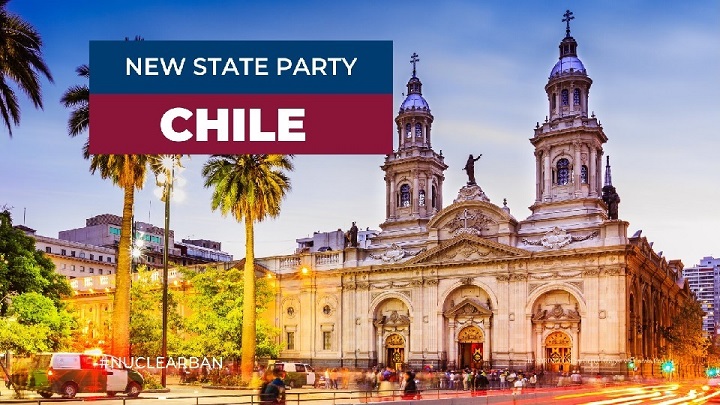Chile is the thirteenth Latin American country to ratify the Treaty on the Prohibition of Nuclear Weapons.
With Chile’s ratification, 13 Latin American countries have now ratified the Treaty on the Prohibition of Nuclear Weapons (TPNW): Bolivia, Chile, Costa Rica, Cuba, Ecuador, El Salvador, Honduras, Mexico, Nicaragua, Panama, Paraguay, Uruguay and Venezuela.
Five other countries in the region have signed the treaty and are working towards ratification: Brazil, Colombia, Peru, Guatemala and the Dominican Republic.
With this ratification, 86 countries have signed the TPNW and 56 have ratified it.
On 7 July 2017, after a decade of work by ICAN and its partners, an overwhelming majority of the world’s nations adopted a historic global agreement to ban nuclear weapons, officially known as the Treaty on the Prohibition of nuclear weapons.
The treaty, after reaching its minimum milestone of 50 ratifications, entered into force on 20 January 2021.
It specifically prohibits States parties from developing, testing, producing, manufacturing, acquiring, possessing, deploying, using or threatening to use nuclear weapons and aiding or encouraging such acts.
It will seek to reinforce existing international law that obliges all states not to test, use or threaten to use nuclear weapons.
Chile’s ratification signature coincides with the development of the Latin American March for Nonviolence, which is touring Latin America between 15 September 2021, the Bicentenary of the Independence of Central American countries, and 2 October, the International Day of Nonviolence.






